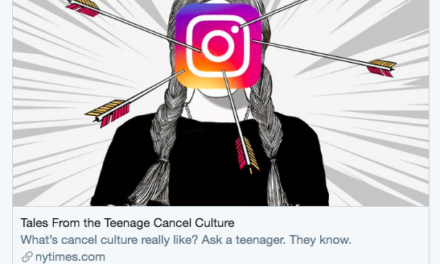A veteran education reporter describes revamping her approach and having “one of the most rewarding times in my professional career.”
By Linda Jacobson
In July 2020, just as the debate over reopening schools was beginning to heat up, I took a full-time job reporting for The 74, the nonprofit education news outlet started in 2015.
I love reporting. Education has always been my beat. And I wanted to work with writers and editors who felt the same way I did about covering it — and wanted to see more from my work.
Little did I know at the time that I would work harder than I ever had, change my approach to covering the beat, and have one of the most rewarding times in my professional career.
Little did I know at the time that I would work harder than I ever had.
I started out covering schools at the Atlanta Journal-Constitution, spent some time at Education Week, and took a side route into higher education, thinking I might want to work for a school of education.
Right before I moved over to The 74, I wrote for Education Dive, which was my first leap back into daily coverage after freelancing for several years.
But Ed Dive (now K-12 Dive) was part of a whole array of “Dives” and I wanted to be back with an all-education reporting team.
At The 74, there’s much less emphasis on process and far more on the students, parents, and families affected, especially those who haven’t been served well in the past. Does where they live and go to school make their lives better or worse?
For example, one piece of mine looked at the challenges of identifying students experiencing homelessness during remote learning. I also wrote two stories on students that needed to pick up jobs to help support their families and how schools were trying not to lose contact with them completely.
I wouldn’t say it’s a surprise, but shifting my reporting to fit The 74’s vision has been an adjustment.
I’ve covered education for a long time, but in other places I’ve worked, the audience was more of an insider crowd — administrators, researchers, advocates.
In other places I’ve worked, the audience was more of an insider crowd.
I’ve always been adept at covering policy, programs, new studies, how they compared to what came before, who this would impact, and more.
Of course, I’ve always talked to parents, students, and teachers in my reporting, but sometimes they were more of an add-on to an article. I would maybe slot them into a story where their particular experience, challenge, or perspective was relevant.
But rarely did parents drive most of the reporting — because it wasn’t an expectation. The story would tend to circle back to the policy, legal, or teaching issue I was covering.
It became clear from the positive reaction to some of my stories that The 74’s readers care less about procedural issues and more about how people interact with schools — when that goes well and when it doesn’t.
One example was an August 2020 story focusing on the short-term solutions districts were using to address students’ lack of internet access. Even with hotspots and buses enabled with Wi-Fi, students were getting dropped off of Zoom and having to submit homework from fast food restaurant parking lots.
Ulises Altamirano, who was a senior at a San Jose charter school last year, talked about how he was trying to submit an essay for an AP U.S. History exam when the connection started buffering. And when the family’s data plan ran out at the end of the month, they would go to McDonald’s to get their work done.
Rarely did parents drive most of the reporting — because it wasn’t an expectation.
There have been a lot of standout moments for me in the past two years, though it wasn’t always a smooth transition to this new way of doing things, especially given the challenges of the pandemic and the lockdown.
I’m proud of the first look last fall at student retention rates across multiple districts, inspired by the suggestion from some experts that having kids repeat the grade they were in during the 2020-21 school year might be a good way to deal with learning loss.
Parents who held their kids back and those strongly opposed to the idea were a major part of that piece.
I used FOIA requests to get fall 2021 retention data from some of the nation’s largest districts — something that usually doesn’t show up on a state or district website until a year later. And I heard the hope in parents’ voices that their children would catch up even though they were reading way below grade level.
One of the best moments was our recent “700 Days Since Lockdown” package, which turned into a moving blend of commentary on how schools have responded during the pandemic and personal stories of loss, anxiety and new beginnings.
Even experts we usually talk to about complicated policy matters shared details of the moments they realized the world was shutting down and the pain they felt watching their own children deal with isolation.
Education finance expert Marguerite Roza talked about her daughter, then a high school cross country runner, who was missing the sports season and her friends and growing more discouraged.
“You could just see it was not really healthy for her just to be home all alone every day, and as a parent, you start to feel desperate,” she told me. “I used to listen to press conferences constantly to see if there was any movement. Even when the evidence said he could start opening schools again, you could see that there wasn’t going to be any movement.”
District leaders were open about their own struggles. Highline Public Schools Superintendent Susan Enfield said, “There were weekends where I didn’t get off the couch. I’ve been pretty honest about that in conversations with others. I said to someone once, ‘If one more person says, “You got this,” I’m gonna smack ‘em.’”
Whenever I relapse…I’m nudged back in the other direction.
I never thought my work would appear in places like Newsweek and The Guardian, so those certainly count as highs, and it’s been an honor to work with editors who often see more potential in my stories than I do.
But whenever I relapse into giving more weight in a story to some “initiative” or program than I do the realities of parents, kids and educators, I’m nudged back in the other direction.
The carefully constructed paragraphs that prove my expertise in a topic take a back seat to the details of people’s lives that make readers care about these issues — territory where it’s much harder to be an expert, where I’m learning with every story.
As the pandemic winds down (sort of, maybe), the lessons of the last couple of years will stick with me. I don’t view the stories I’ve done as just pandemic coverage. Like many education writers, I’ve gained a window into students’ and families’ lives that will guide my work going forward.
I became far more accessible to sources, often talking with parents, students or busy teachers at odd hours. That doesn’t bother me because it usually pays off. I talk to sources over Zoom when that’s an option.
There’s also been a lot of texting and DMs to parents in Facebook groups. As soon as any opportunities opened up to do reporting in person (usually outside), I took advantage of that.
I spend a lot more time now just having conversations with sources that may or may not ever turn into a story — not just the “experts” — but parents as well. I get ideas that way, it builds trust and helps expand my access to networks of other parents. People feel less on the spot and that’s useful in the long run.
I think I’m learning what resonates with The 74’s readers. The stories I’m doing are probably more complex than what I was used to in the past. And since all my time at The 74 has been during the pandemic, they often cover some pretty contentious issues.
If I’m making parents’ and students’ experiences a more central part of the story, that means I spend a lot more time talking to them. But it might take emails/calls to 5-10 parents before even one feels comfortable talking to a reporter.
Advocacy groups and nonprofits are happy to refer me to families — and I value their willingness to do that — but I also like to go a few layers beyond those connections to get perspectives that are different than the group’s primary position or agenda.
I live near the beach, so that alone is nice and distracting in a good way. I’m also grateful that my kids are old enough that I’m no longer driving them to school, sports, etc. I spent years meeting deadlines from ice rinks and in my car on the hotspot from my phone. That can cause some stress.
My editor and I talk almost daily and there’s frequent communication about how stories are going. After almost two years, I finally met him for the first time.
Linda Jacobson is a senior writer for The 74, covering federal education policy and issues with a national scope. She’s also worked for the Atlanta Journal-Constitution, the Education Writer Association, Education Dive and Education Week. You can follow her at @lrj417.















